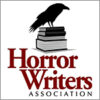
 Tamika Thompson is a writer, producer, and journalist. She is author of speculative fiction collection, Unshod, Cackling, and Naked (Unnerving Books, 2023), which Publishers Weekly calls “powerful,” “unsettling,” and “terrifying,” as well as author of horror novella Salamander Justice (Madness Heart Press). Her work has appeared in several speculative fiction anthologies as well as in Interzone, Prairie Schooner, The New York Times, and Los Angeles Review of Books, among others.
Tamika Thompson is a writer, producer, and journalist. She is author of speculative fiction collection, Unshod, Cackling, and Naked (Unnerving Books, 2023), which Publishers Weekly calls “powerful,” “unsettling,” and “terrifying,” as well as author of horror novella Salamander Justice (Madness Heart Press). Her work has appeared in several speculative fiction anthologies as well as in Interzone, Prairie Schooner, The New York Times, and Los Angeles Review of Books, among others.
She has producing credits at Clear Channel Media and Entertainment, as well as at NBC and ABC News. She received a Bachelor of Arts in Political Science from Columbia University and a Master of Arts in Journalism from the University of Southern California. She lives in the San Francisco Bay Area. Find her online at tamikathompson.com, and on Twitter and Slasher @tamikathompson.
What inspired you to start writing?
Storytelling. There was a strong oral storytelling tradition in my family, and, as a child, I created and told stories to anyone who would listen. This penchant for character and story creation led me to a commercial acting career, which lasted until I graduated college. I went on to get a Master of Arts in journalism, and several years into my journalism career, I took a writing course in creative nonfiction, thinking I would build upon my work. On a whim, I also signed up for a fiction class, and I was hooked. The weird, dark, terrifying stories that had been living inside of me for decades came pouring out and onto the page. The release was exhilarating, and I experience a bit of this feeling each time I give myself over to a new story.
What was it about the horror genre that drew you to it?
My mother is a horror enthusiast and introduced me and my brother to the genre. As a child, bedtime stories were horror stories, told by my maternal grandmother and my mother. My father would get in on the spooky tales from time-to-time as well. My favorite one was about bloody bones, and I’d ask my mother to tell it again and again. In the morning, I’d wake and examine the walls in my bedroom for a streak of blood, signaling that the deadly creature had visited my room overnight and I’d escaped death.
These tales of the macabre stuck with me, and I was drawn to books like Scary Stories to Tell in the Dark and all things Stephen King. My older brother and I kept a steady diet of films and shows that built upon that sense of dread—Tales from the Darkside, Monsters, Friday the 13th, (the film series and the television show), Pumpkinhead, Rawhead Rex, and later Tales from the Hood, and Scream. The list goes on and on.
It was all entertaining, for sure, but the message embedded in each tale I received from the adults around me was “remain vigilant.” I grew up in Detroit at the height of the crack epidemic and at a time when the city was often the nation’s so-called murder capital. And my father had grown up in southern Alabama during one of our nation’s most tumultuous time periods for racism and segregation. There was a reason my grown-ups were scaring me, and asking me to consider what I would do when the boogeyman came to my neighborhood, my house, my school, my church, and how I would handle it when the monster came to live inside of a loved one or even inside of me.
Do you make a conscious effort to include African diaspora characters and themes in your writing and if so, what do you want to portray?
There is no real effort on my part because writing characters from the African diaspora comes naturally to me. I attended predominantly white institutions for my entire academic career, from catholic school to Columbia University and on to the University of Southern California, but for the first eighteen years of my life I lived in a city that was more than eighty percent Black. Black is my default. Black is how I see the world, and it is the filter for all of my experiences. When I did leave home, I moved to Manhattan and later Los Angeles, and always naturally surrounded myself with my people. That perspective is evident in my pages.
The goal in my writing is to portray Black characters navigating their lives and the conflicts within their stories, not having them live out race-trauma narratives for the white gaze. There is a preponderance of Slavery-Civil War-Reconstruction-Jim Crow-Civil Rights Movement- works in American literature, film, television, and stage plays. Some of the work is vital and brilliant. Some of it is trauma-porn for a white audience. I am not interested in using my pages to revisit those traumas. While American racism will certainly remain a part of the context of my characters’ lives, it will not be the focus of the work.
What has writing horror taught you about the world and yourself?
Writing horror has brought me in community with horror writers, editors, publicists, and publishers, and they have been and continue to be the kindest people I’ve ever worked with. Tender-hearted, giving, encouraging, inspiring. I mean, someone nominated me for this feature, with no expectation of getting anything in return. Only when I came to the horror community did I feel that sense of belonging from all of my colleagues. Perhaps there’s something about rendering fear, violence, and dread on the page that allows the author to demonstrate compassion in real life that exceeds the norm.
How have you seen the horror genre change over the years? And how do you think it will continue to evolve?
Since the early aughts, web and social media have flattened distribution. New media have chipped away at the monopoly on content and marketing in New York and now includes anyone with a phone, camera, microphone, and something to say. As much griping as legacy media do about the changes that new media brought, this flattening is a good thing for both readers who have not historically been marketed to as well as historically marginalized creators. I’ve witnessed how these changes have impacted horror publishing. It used to be I’d struggle to discover horror books I loved, especially by writers of color. It used to be I’d go into a book store and couldn’t find a horror section, and if I did, it only stocked Stephen King and Anne Rice. Where did that leave works by writers of color? LGBTQIA+ creators? People who wrote extreme horror?
Now, I belong to a Facebook horror group filled with like-minded readers who love to share their opinions as soon as they close a book. I don’t have to leave my home to have a conversation with them about it. We can discover a new series on TikTok and dish about it on Discord. And when I read and love a book, I can talk about it on my blog and upload my thoughts to Slasher and take a picture of the book resting in my palm for Instagram.
As an author who happens to be a member of a historically marginalized group, this change is powerful. I have seen books published by tiny horror presses become bestsellers and instant cult classics because of these web and social conversations. When my story collection got great reviews from Publishers Weekly and Booklist, my publisher and I celebrated the recognition, but I’m delighted to see more opportunities for horror works to be reviewed and shared among readers and creators of color.
How do you feel the Black community has been represented thus far in the genre and what hopes do you have for representation in the genre going forward?
From the first time I picked up a horror text or rented a scary movie from Blockbuster, I’d often be pulled from a story simply because of the racist portrayal of a black character (think Dick Hallorann from The Shining). Either the Black person was what Spike Lee coined a “Magical Negro” or they were killed off first to increase the stakes for the white characters. *
But two things happened in recent years that have caused seismic shifts for black horror creators. In 2018, Jordan Peele’s Get Out received 39 major film nominations and won 17 awards, including an Academy Award for Original Screenplay. His box office hit was, of course, a horror film that tackled American racism head-on. And in 2020, Minneapolis police murdered George Floyd, and the video of his killing was watched around the world.
Publishers, editors, agents (read: gatekeepers) sought out black creators, and works by black horror creators were pushed to the fore. The solution to racist portrayals has been more freedom for works by creators of color to enter the market.
But barriers to publication, marketing, and distribution for works by Black people remain. And beyond those barriers are gatekeepers who ensure that many of the black stories that do enter the market are pushing a race trauma narrative to satisfy the white gaze. I am hopeful that members of the African diaspora will be published in greater numbers, will continue to create our own channels for publication, distribution, and marketing, and will also be able to tell the stories that represent our lived experiences and not just our race trauma.
Who are some of your favorite Black characters in horror?
Jessica and David from Tananarive Due’s African Immortals series. Their love story is both beautiful and heart-wrenching.
Shori from Octavia E. Butler’s Fledgling. Needs no introduction.
Michonne from The Walking Dead. The first time I saw her wielding a sword in all her glory, I shouted, “Oh, yes. Indeed.”
Mr. Simms from Tales from the Hood (1995). Clarence Williams III is brilliant in this role. He may have delivered my favorite line in all of horror cinema: “Don’t worry. You’ll get the shit. You’ll be knee-deep in the shit.”
Chris and Rod from Get Out (2017). Their relationship is a master class in the balance of horror and humor. As my grandmother would say, “You gotta laugh to keep from crying.”
Who are some African diaspora horror authors you recommend our audience check out?
Brandon Massey, Zin E. Rocklyn, Tananarive Due, R.J. Joseph, and Linda Addison.
What is one piece of advice you would give horror authors today?
Respect all sub-genres. I have been surprised to see “literary” vs. “genre” pretentiousness play out within horror, and have even seen talk of “elevated” horror. This smacks of elitism. Personal tastes cannot be conflated with quality because whose tastes are the dominant ones that set the standards within the industry for reviews, awards, recognition? Consider the gatekeepers and who they are marketing to. The readership is larger than they would lead us to believe.
And to the Black writers out there who are just getting started, what advice would you give them?
On behalf of the stories that live inside of you, your job is to persevere. Persevere in completing your drafts. Persevere in revising your manuscripts. Persevere in submitting your work for representation and publication. Persevere in finding homes for your works. Persevere in promoting them upon publication. At every step, unequivocally and unabashedly, your job is to persevere.
*For further reading, I wrote an essay about Hallorann’s portrayal at Ginger Nuts of Horror. Link is here—https://gingernutsofhorror.com/features/revisiting-hallorann-the-double-killing-of-dick-hallorann-in-stanley-kubricks-the-shining


